Peers around the world: From the power of arms to the power of knowledge
/Jorge_Arosemena__Executive_President_of_Ciudad_del_Saber.jpg)
In our continuing "Peers Around the World" series, where we speak with global leaders in innovation spaces, we sit down with Jorge Arosemena, Executive President of the Ciudad del Saber/City of Knowledge in Panama and actively engaged in the IASP community since 1996. Located right on the Panama Canal and originally a military base, taking books instead of weapons they were able to accomplish a dream and create what is now a thriving innovation ecosystem and a pioneer in its field.
Ciudad del Saber – the City of Knowledge - is an iconic project created at Fort Clayton, a former U.S. military base. You have been there since the very beginning – how has the project matched your expectations from back then?
Well, in the case of the City of Knowledge (CK) what we had to do was create something new, new even for ourselves. What is now more common, back then (in 1998 when the project was finally completed) was a very innovative concept. We encountered many hurdles along the way, suddenly finding ourselves not only as developers and managers of the project, but also in the role of having to educate – our staff, our users, our community. Despite this, I think we did a good job and certainly met expectations in terms of fostering entrepreneurship through innovation and establishing capabilities for research and development. Of course, in terms of trade and commerce Panama has a long tradition of great expertise, but putting together companies and universities in this way, and developing certain kinds of technology-based innovation was relatively new, maybe more than in other parts of the world.
For me at a personal level, as well as professional, it has been an exhilarating experience, and it has been enormously fulfilling being on this journey thus far. All in all, I think we are legitimate in saying that we are greatly satisfied with the work done, which does not mean that we do not have many more things still to accomplish.
CK now confronts the task of navigating the ongoing transformation within our interconnected global operating environment. We are working on this by amplifying our ‘glocal’ influence by elevating innovation capabilities, cultivating a conductive working atmosphere, and adapting our business mode in alignment with emerging opportunities. These changes are enhancing CK's position as a crucial information source, establishing it and its global allies as valuable contributors to public affairs, fostering a sense of ownership and public support for our mission.
The City of Knowledge has a strong international community, also being the headquarters of the UN Interagency Hub for Latin America and the Caribbean. How do you attract and engage such organisations?
We have found that the most effective method of engaging with such organisations begins by extending invitations to them, coupled with government lobbying and engagement with business associations, offering them a welcoming and secure workspace. This unique environment offers the opportunity to facilitate interactions among these entities and with the multinational actors in their vicinity.
You have a strong emphasis on creating sustainable urbanism in the area, and have various projects focused on alleviating the climate crisis. Please tell us more about this.
This has been a very interesting learning process. In addition to creating and fostering the intangible innovation aspects, we also were working with the architectural heritage of former military bases and we wanted to reuse many of the things that were here already.
Over the years we have successfully established an eco-conscious atmosphere within our facilities thanks to meticulous planning and educating our staff and clients. This has been done despite encountering challenges arising from an absence of real estate planning in our surrounding areas. We were able to safeguard the architectural heritage of the military base and its green spaces and set forth crucial early policies, such as requiring the US LEED environmental certification for new constructions and renovations of existing structures. CK now proudly houses the most extensive group of LEED-certified buildings in the region.
In 2014, the City of Knowledge Foundation adopted a networked organizational system to promote integration, collaboration, and learning. What did this strategic direction entail and what were the main milestones?
Our progress has unfolded through two fundamental avenues: firstly, establishing a real estate business complemented by value-added services for knowledge management, and secondly, advancing knowledge management aligned with our mission to foster a prosperous, inclusive, sustainable, and democratic society through innovation associated to social change. These two paths represent interconnected facets of a unified project: the physical City serving as the means, and knowledge management serving as the purpose
The Foundation is currently developing a strategy to expand its area of influence. What challenges does this pose, and how you are implementing it?
Historically, CK's growth has been intertwined with the expansion of a global services platform, predominantly focused on logistics, finance, and IT, within the transisthmian corridor associated to the Panama Canal. Currently, this global services platform is experiencing a diminished rate of growth and development.
What we have done in response to this challenge is for CK to diversify its business scope to facilitate future development in emerging areas of innovation, such as health services, sustainable agricultural production, and the production and management of environmental services. This strategic shift aligns with the broadening of CK's engagements with other parts in the country, particularly those with well-organized business and social sectors. The collaboration aims to facilitate the transition from a local to a glocal character of activities via innovation in association with global partners.
Based on your experience, what are some key takeaways that you can offer to anyone looking to create a new innovation district or community?
On a practical level, it is crucial to look for business and social organizations currently operating at a local level, and help their integration into the global context by providing access to global scientific, academic and management support through networking services, fostering collaboration and innovation initiatives with external partners.
From our experience, genuine technological progress is invariably linked to societal transformation, bringing about enhanced opportunities and improved living conditions for all parties involved. Therefore, working in emerging business areas such as the production of environmental goods and services, or the development of more sustainable production processes convert comparative advantages into competitive strengths within the global economy. Fostering an open exchange of ideas creates synergies which support the advancement of social change, approached from a humanistic, scientific, and business approach.
More than 25 years have passed since this project first started and despite the huge challenges, the rewards have been huge as well. The energy and enthusiasm of the instigators of the project (Fernando Eleta Almarán and Gabriel Lewis Galindo) has been passed on over the years and has inspired a whole new generation, wholly committed to being an innovative community which is open to all. This result makes it all worth it, and I’d recommend the experience!

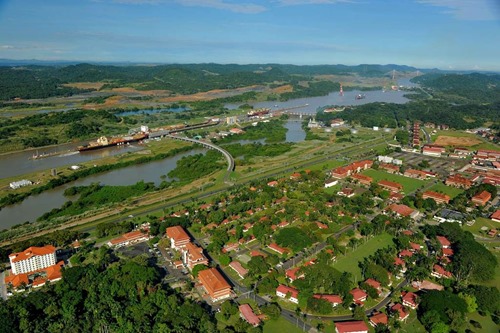
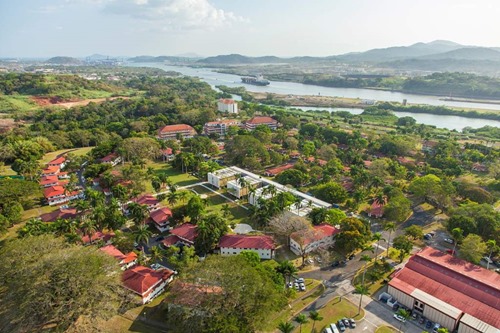
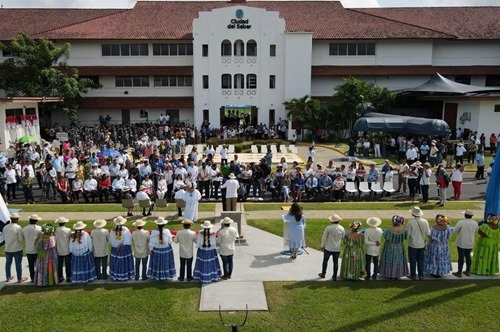
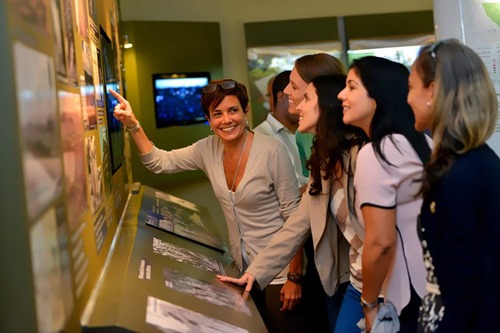
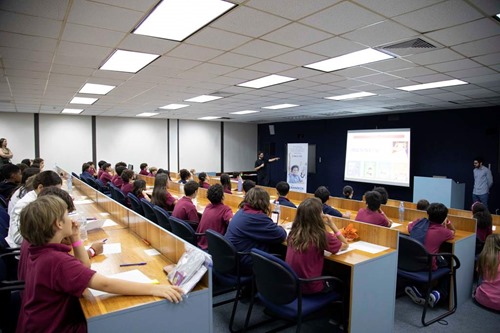
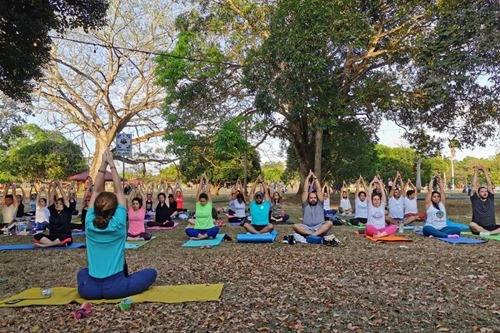
.jpg)
.png)
.JPG)
Comments
- This email is for internal purposes and will not be shown
- CommentAmazing article!
- Are you a member? Log in to comment
/)

/canvascolor(0xffffffff)/business-incubator-logo.png)
/canvascolor(0xffffffff)/2024_05_24_Kenya_Tharaka_University.jpg)
/canvascolor(0xffffffff)/Logo_Bioindustry_nuovo_1.jpg)
/canvascolor(0xffffffff)/2023_01_26_Italy_Scientifica_VC.png)
/canvascolor(0xffffffff)/La_Salle_Barcelon_logo.png)
/canvascolor(0xffffffff)/MemberLogo-75801-6122.jpg)
/canvascolor(0xffffffff)/2018_01_24_Italy_Kilometro_Rosso.png)
/canvascolor(0xffffffff)/2017_11_03_Spain_PT_de_Asturias.jpg)
/canvascolor(0xffffffff)/________logo.png)
/canvascolor(0xffffffff)/DSP_logotyp_svart_png.png)
/canvascolor(0xffffffff)/Logo_22.png)
/canvascolor(0xffffffff)/Svart_kontur_liggande_ssclogo_1.png)
/canvascolor(0xffffffff)/2022_01_26_Spain_PCT_Tenerife.jpg)
/canvascolor(0xffffffff)/WhatsApp_Image_2023-08-01_at_14.01.59_5.jpg)
/canvascolor(0xffffffff)/MemberLogo-59301-6100.jpg)
/canvascolor(0xffffffff)/mip-logo-rgb_1.png)
/canvascolor(0xffffffff)/logotecnopole_alta_resolucion_1.jpg)
/canvascolor(0xffffffff)/HiRes_logo_transparent.png)
/canvascolor(0xffffffff)/logo2024TV.png)
/canvascolor(0xffffffff)/MemberLogo-69601-343301.jpg)
/canvascolor(0xffffffff)/logo-scipark_2.png)
/canvascolor(0xffffffff)/logo_EN_-_Science_Park_UA_1.png)
/canvascolor(0xffffffff)/2024_08_28_Saudi_Arabia_Dhahran_Techno_Valley.png)
/canvascolor(0xffffffff)/2023_10_23_Sweden_Sandbacka_SP.jpg)
/canvascolor(0xffffffff)/Aj_basa_2014_color-fonsgrisE_2.png)
